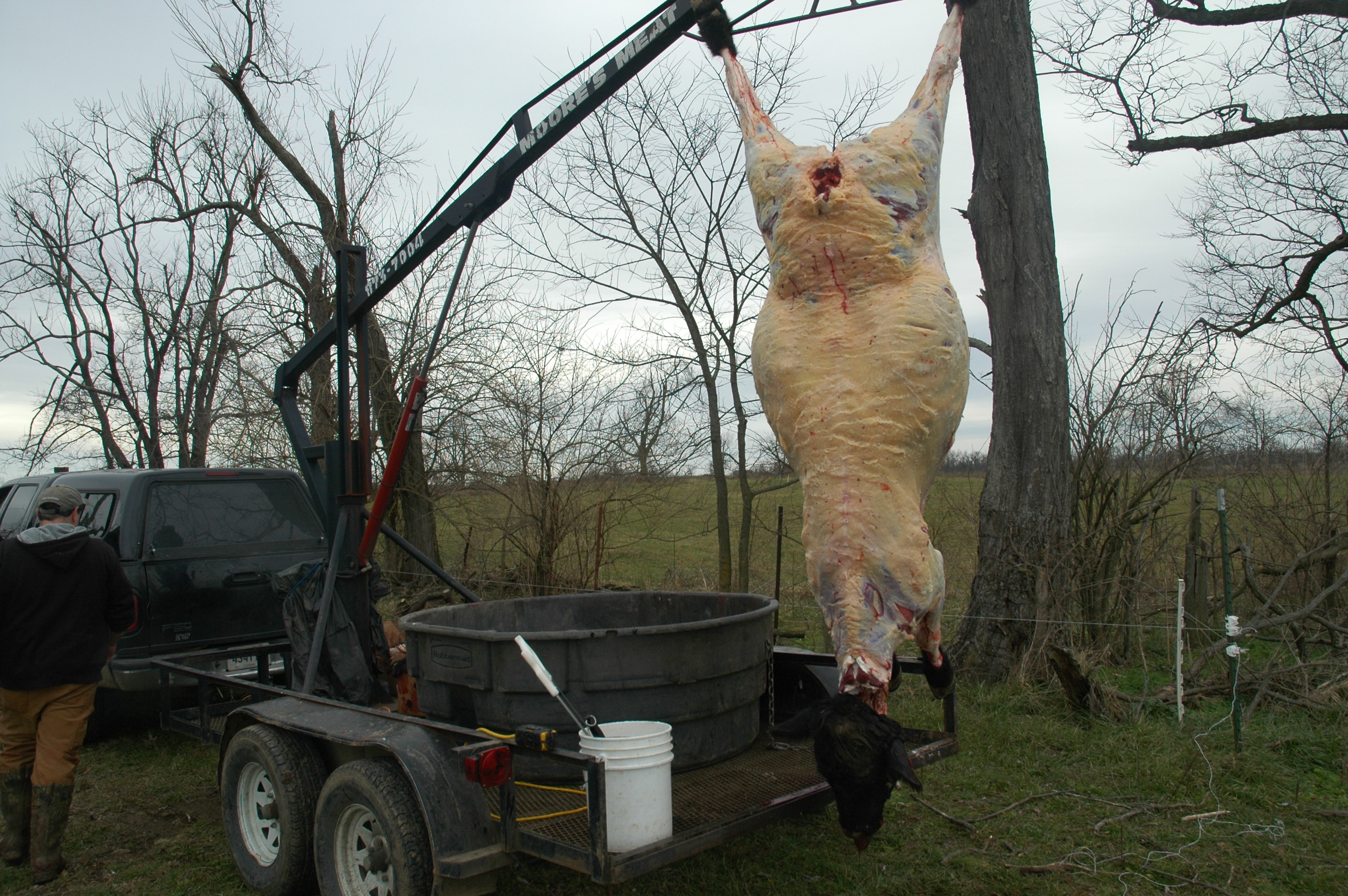
Updated below.
As I was sayin’, there’s something a little fishy about all these contrarian takes on conventional wisdom, by writers who style themselves as brave iconoclastic thinkers but really are just defenders of the status quo.
Here’s another one, on a subject dear to my heart, the merits of grass-fed (and -finished) over “conventionally raised” beef. In the ominously titled Beware the myth of grass-fed beef at Slate, Dr. James McWilliams, associate professor of history at Texas State University, scores yet another high-profile national opinion place. Previously, he had posted pieces on the New York Times‘ “Freakanomics” blog with provocative titles like “Are Farmer’s Markets that Good for Us?” Last April he snared the prime real estate of the Times opinion page with Free-range trichonosis, in which he argued that free-range pork could be more dangerous that the pork that comes from factory farms.
About that particular 0p-ed. It was published April 9. On April 14, this disclaimer appeared at the bottom of the piece:
An Op-Ed article last Friday, about pork, neglected to disclose the source of the financing for a study finding that free-range pigs were more likely than confined pigs to test positive for exposure to certain pathogens. The study was financed by the National Pork Board.
(Oops. Maybe someone on the Times‘ opinion staff might have thought to ask about that before running it in the paper of record. Or maybe they did. Nobody reads the retractions….)
And McWilliams is also called out in this (generally favorable) Publishers Weekly review:
At times, McWilliams shortchanges his own arguments by failing to disclose the financial or institutional backing of his sources (including various talking heads, esoteric-sounding think tanks, and scientific journals), leaving readers to comb extensive footnotes and web links to determine how the evidence stacks up.
If McWilliams’ goal has been to ruffle the feathers of alternative agriculture advocates everywhere, he has succeeded admirably. Mr. Google turns up many angry responses to his sometimes shady polemics.
This one, by Tom Laskowy, pegs McWilliams as as a willing participant in the FUDosphere (FUD standing for Fear Uncertainty Doubt), a “network of Sith-lord scientists and unrepentant PR flacks who have no compunctions about tweaking their research methodologies … to generate results both favorable to industry and confusing to those trying to understand the truth.”
The FUD-osphere includes doctors who perform industry-funded research to demonstrate the safety of new drugs (Vioxx, anyone?). It includes crackpot scientists and historians, like James McWilliams, who has an op-ed in the NYT in defense of factory-farmed pork—shown to be fiction by Marion Nestle and and Civil Eats. McWilliams has a history with this kind of thing—he authored a deeply flawed article in Slate —debunked here—accusing organic agriculture of responsibility for the presence of heavy metals in soil. Meanwhile, he has written a forthcoming book about the evils and dangers of local food. Really.
In a review of his Just Food, also in Grist, Stephanie Ogburn identifies McWilliams’ modus operandi:
Again and again, one gets the uncomfortable feeling that McWilliams creates fanatical straw men in order to make his own presentation of facts seem like a rational alternative. “The problems that I have with organic agriculture have less to do with how it is currently practiced than with the inflated claim that it’s the only alternative to today’s wasteful conventional production,” he writes. But do any serious proponents seeking more sustainable alternatives to conventional agriculture claim this?
The point in dredging up these studies … [is] a warning that advocacy for a trendy food choice might result in a public health hazard. Such a fear is confirmed by consulting the cooking directions provided by many purveyors of grass-fed beef. The home page for one major producer explains that “cooking ‘real food’ is not the same as cooking concocted food. … Grass-fed meats are best when raw (steak tartar), rare, or medium rare.” Given that the FDA recommends cooking ground beef to 160 degrees to guarantee safety from E. coli, this eat-it-undercooked advice could be dangerous.
Whether or not grass-feeding reduces the number and acidity of E. coli in the digestive tract of cattle, there is another undisputed reason that eating grass-fed beef may be safer. Cattle raised on pasture are cleaner at the time of slaughter.
E. coli contamination takes place in the slaughterhouse when manure from an animal comes in contact with meat. The less manure on an animal when it enters the slaughter house, the less likely the meat will become contaminated.
It is difficult to remove all the fecal contamination from feedlot cattle because they stand all day long in dirt and manure. In a recent article in the magazine Meat Marketing and Technology, the associate editor stated that pasture-raised animals were much easier to clean “because they come from small herds raised in relatively clean pastures.” Most U.S. cattle, he said, “are raised in far larger numbers in congested and typically less sanitary feed lots.” (“The Future of Food Safety,” by Joshua Lipsky. Meat Marketing and Technology, April 2001.)
2 thoughts on “Keeping America safe … from foodies”